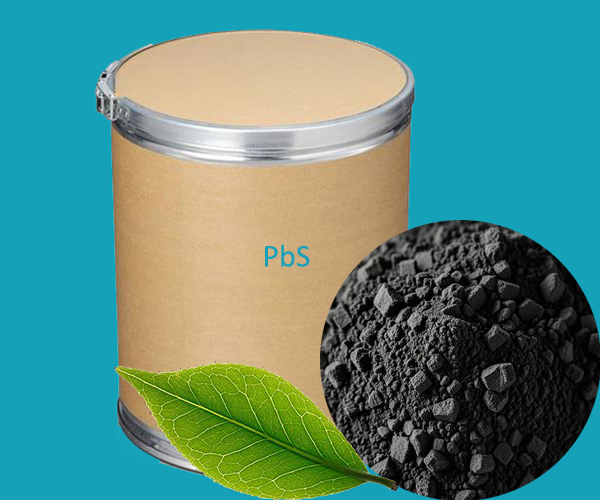Lead sulfide (PbS) is a black powdered inorganic compound with a high density (about 7.5 g/cm³) and melting point (1114°C). It is insoluble in water and alkali but soluble in acids such as nitric acid and hydrochloric acid. Lead sulfide has a wide range of applications in electronics, metallurgy, chemical industry and other fields.
1. Semiconductor material: Lead sulfide is an important semiconductor material, which has a direct band gap and the band structure is suitable for photoelectric conversion. As a result, it is used in the manufacture of solar cells, photodetectors, and other optoelectronic devices.
2. Infrared detectors: Lead sulfide has high sensitivity in the infrared spectral region, so it is used in the manufacture of infrared detectors, which have important applications in the military, night vision devices, thermal imaging, and remote sensing fields.
3. Optical materials: The optical properties of lead sulfide make it potentially useful in the manufacture of certain types of optical devices, such as optical filters and optical switches.
4. Thermoelectric materials: Lead sulfide can also be used in thermoelectric power generation and cooling, and based on its thermoelectric properties, it can be used to make thermocouples and thermoelectric devices.
5. Metallurgical industry: Lead sulfide is one of the ore of lead, so in the smelting process of lead, lead sulfide is used as a raw material to extract metallic lead.
6. Chemical raw materials: Lead sulfide is also used as a raw material for the production of other lead compounds in the chemical industry, such as for the production of lead sulfate, lead acetate, etc.
7. Pigments and ceramics: Lead sulfide can be used as a colorant in the ceramic industry.
 English
English Español
Español Português
Português Français
Français Deutsch
Deutsch Русский
Русский 中文
中文 日本語
日本語
